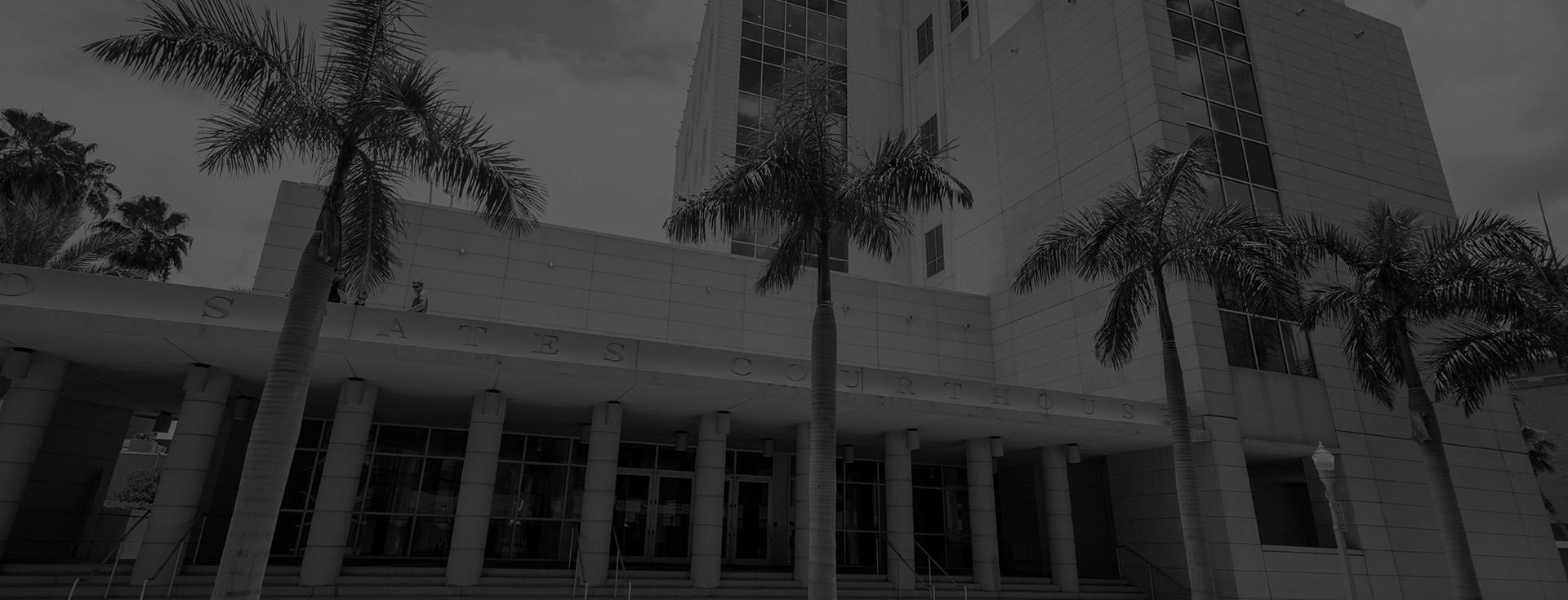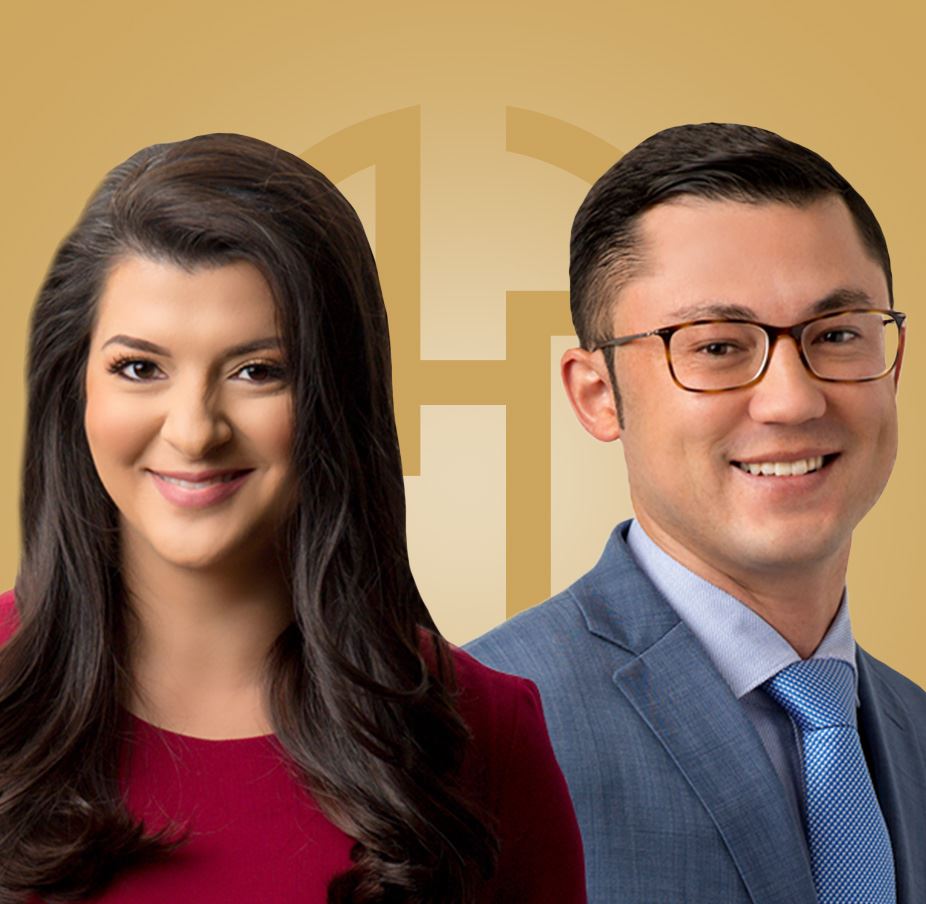
Your Case Deserves Immediate Attention - Call Hubbs Law Today
Miami Drug Trafficking Attorneys
Aggressive Legal Defense for Serious Criminal Drug Cases
Drug trafficking is an extremely serious criminal charge with severe consequences. A person convicted of trafficking in a controlled substance may be sentenced to prison for a long, long time. Fines imposed for a drug trafficking conviction may balloon to six figures.
If you or your loved one has been charged with drug trafficking, contact Hubbs Law Firm as soon as possible for a free consultation. Our Miami drug trafficking attorneys can help you understand your options and fight for the most favorable outcome possible in your case. As former prosecutors, we understand how to navigate the criminal justice system, and we are prepared to aggressively advocate for you and your rights.
Call (305) 570-4802or submit an online contact formto request your free consultation with our firm.
Understanding Florida’s Drug Trafficking Charges
At the state level, Florida pours millions of dollars into fighting the "war on drugs." Lawmakers have decided that by devoting more resources to focus on traffickers instead of low-level dealers or users, they can attempt to stem the flow of illicit drugs. Therefore, Florida's drug laws are the harshest on so-called traffickers, or smugglers.
Trafficking in drugs, narcotics, or controlled substances is no different, legally, from selling drugs or possessing drugs except for the quantity of drugs involved.
A multi-national drug cartel is not necessary for the state to file a drug trafficking charge. For certain types of drugs, such as cocaine or heroin, a small quantity that might fit into a person's pocket is enough to trigger a trafficking charge, according to Florida's drug trafficking law (Section 893.135 of the Florida Statutes).
What to Do If You Are Arrested for Drug Trafficking in Florida
Miami developed a reputation as a drug trafficking hub during the infamous cocaine wars of the 1980s. Although the carnage from that time has subsided, the Miami area remains a hotbed for the trafficking of a variety of narcotics and controlled substances.
A person arrested for drug trafficking in Miami today will confront an army of prosecutors with an array of well-funded resources. The only way to respond is by hiring a Miami drug trafficking defense attorney with the experience and knowledge to organize a vigorous defense on your behalf.
At Hubbs Law Firm, our founding attorney, E.J. Hubbs, has been Board Certified in Criminal Trial Law by the Florida Bar. To earn board certification, he was evaluated for competency and experience within the area of criminal trial law, as well as for his performance, ethics, and professionalism in practice.
Drug Trafficking vs. Drug Sale or Delivery
The sale or delivery of a controlled substance is illegal in Florida under the Florida Statutes, Title XLVI, Chapter 893, § 893.13. The laws clearly define the difference between drug sales and drug trafficking, based on quantity. Drug trafficking is a first-degree felony, and the penalties for trafficking a controlled substance are more severe than for the sale or delivery.
The standard jury instructions for criminal cases approved by the Florida Supreme Court allow a jury to infer that "a person who sells a controlled substance knows of its illicit nature" (See McMillon v. State, 813 So. 2d 56 [Fla. 2002]).
Penalties for Drug Trafficking in Florida
People accused of drug trafficking in Florida face severe criminal penalties if convicted at the state level.
In order to prove an allegation of drug trafficking under § 893.135 of the Florida Statutes, all that a prosecutor must show beyond all reasonable doubt is that:
- A person had knowledge of the substance;
- The substance was the controlled substance that was alleged; and
- The substance weighed over the minimum alleged amount.
Only a prosecutor can recommend to the court a departure from the mandatory minimum sentence.
A majority of drug trafficking cases involve controlled substances such as:
- Marijuana
- Cocaine
- Heroin
- Prescription painkillers, such as hydrocodone or oxycodone
The state penalties for drug trafficking are harsh, with mandatory minimum sentences required in the Florida State Prison and fines that greatly exceed the fines for other types of crimes. Penalties usually depend on the type and quantity of drugs allegedly involved. In addition, if you are not a United States citizen, a conviction for an offense related to a controlled substance violation will result in deportation from the U.S. (unless certain exceptions apply).
Penalties for Conviction of Marijuana Trafficking in Florida
Trafficking in cannabis (marijuana) is a first-degree felony, punishable by up to 30 years in state prison, but depending on the amount of marijuana, the mandatory minimum prison sentences and fines imposed after a conviction differ:
- 25 to 2,000 pounds (or more than 300 plants): Three-year mandatory minimum prison sentence and a $25,000 fine
- 2,000 to 10,000 pounds (or more than 2,000 plants): Seven-year mandatory minimum prison sentence and a $50,000 fine
- 10,000 or more pounds (or more than 10,000 plants): 15-year mandatory minimum prison sentence and a $250,000 fine
Penalties for Conviction of Cocaine Trafficking in Florida
Trafficking in cocaine is a first-degree felony, punishable by up to 30 years in state prison, but the amount of cocaine will determine the mandatory minimum prison sentences and fines imposed after a conviction:
- 28 grams to 200 grams: Three-year mandatory minimum prison sentence and a $50,000 fine
- 200 to 400 grams: Seven-year mandatory minimum prison sentence and a $100,000 fine
- 400 grams to 1.5 kilograms: 15-year mandatory minimum prison sentence and a $250,000 fine
Penalties for Conviction of Heroin Trafficking in Florida
Trafficking in heroin is a first-degree felony, punishable by up to 30 years in state prison, but the amount of heroin will determine the mandatory minimum prison sentences and fines imposed after a conviction:
- 4 to 14 grams: Three-year mandatory minimum prison sentence and a $50,000 fine
- 14 to 28 grams: 15-year mandatory minimum prison sentence and a $100,000 fine
- 28 grams to 30 kilograms: 25-year mandatory minimum prison sentence and a $500,000 fine
Penalties for Conviction of Hydrocodone Trafficking in Florida
Trafficking in hydrocodone (marketed under trade names such as Vicodin and others) is a first-degree felony, punishable by up to 30 years in state prison.
However, the amount of hydrocodone will determine the mandatory minimum prison sentences and fines imposed after a conviction:
- 14 to 28 grams: Three-year mandatory minimum prison sentence and a $50,000 fine
- 28 to 50 grams: Seven-year mandatory minimum prison sentence and a $100,000 fine
- 50 to 200 grams: 15-year mandatory minimum prison sentence and a $500,000 fine
- 200 grams to 30 kilograms: 25-year mandatory minimum prison sentence and a $750,000 fine
Penalties for Conviction of Oxycodone Trafficking in Florida
Trafficking in oxycodone (marketed under the trade name OxyContin and others) is a first-degree felony, punishable by up to 30 years in state prison, but the amount of oxycodone will determine the mandatory minimum prison sentences and fines imposed after a conviction:
- 7 to 14 grams: Three-year mandatory minimum prison sentence and a $50,000 fine
- 14 to 25 grams: Seven-year mandatory minimum prison sentence and a $100,000 fine
- 25 to 100 grams: 15-year mandatory minimum prison sentence and a $500,000 fine
- 100 grams to 30 kilograms: 25-year mandatory minimum prison sentence and a fine of $750,000
Note: Other aggravating factors, such as a prior drug conviction or the possession or use of a firearm while engaged in drug trafficking, or a death that occurs as a result of drug trafficking, may result in even more jail time or higher fines. The penalties for trafficking in other controlled substances not listed here (such as methamphetamine, GHB, LSD and others) can also be found in § 893.135 of the Florida Statutes.
Confidential Informants
Law enforcement agencies often use confidential informants to make undercover stings, or “controlled buys,” of drugs. During these types of law enforcement operations, a confidential informant will be instructed to attempt to buy or sell drugs to either a known or unknown person. Police generally record the transaction through audio or video surveillance. The buyer or seller is then arrested once the transaction is completed.
Confidential informants have special status in criminal cases. The State Attorney’s Office can sometimes protect the identity of these witnesses due to the danger of disclosure and the risk of jeopardizing future law enforcement investigations.
You need a qualified criminal defense attorney to address issues related to confidential informants. Many times the identity of a confidential informant can be revealed with a simple motion. In addition, a skilled criminal defense attorney can evaluate the credibility of confidential informants through the discovery process and through depositions. Many confidential informants lack credibility due to prior criminal records, an incentive to receive a reduction in pending charges, and/or payment for their cooperation with police.
Defending a Drug Trafficking Case in Miami, Florida
The Fourth Amendment to the U.S. Constitution, which prohibits unreasonable searches and seizures, sets the framework for proper searches and offers a possible defense when a person is accused of drug trafficking. If the police conduct an illegal search under the Fourth Amendment, any evidence obtained must be excluded.
Florida law allows an entrapment defense when police illegally induce a person to commit a crime when the person induced was not otherwise predisposed to engage in the illegal activity. A defense attorney may also be able to make an argument that the defendant had no knowledge that he or she possessed any drugs.
A skilled drug crime defense attorney will be able to assess the situation and determine factors that may mitigate the charges, which could lead to a reduction or dismissal of the charges.
Trust Our Firm to Fight for You & Your Future
If you were charged with drug trafficking, trafficking in narcotics, or trafficking in a controlled substance in Miami-Dade County or throughout Florida, you face a serious first-degree felony charge, with harsh penalties of years in prison and expensive fines if convicted. A skilled and dedicated criminal defense attorney can help you decide how to respond to your drug charges.
Hubbs Law Firm has the experience and qualifications to help you fight for your freedom. Our Miami drug trafficking attorneys can aggressively defend you against your charges and provide you with skilled representation in your case.
We offer a free initial consultation. Meet our attorneys and let them explain your charges and the potential penalties that may be imposed if you are convicted. Allow us to examine your arrest for any missteps the police or arresting agency made, which could lead to the exclusion of evidence. Ask about possible defense strategies and learn how you might be able to avoid the harshest penalties. We may even be able to secure a reduction or dismissal of the charges.
Don't delay! Call Hubbs Law Firm today at (305) 570-4802 to schedule an appointment to discuss your drug trafficking charge.
Additional Resources
- Florida Statutes, Title XLVI, Chapter 893, § 893.135 – Read the current Florida laws about drug trafficking, the drugs and their amounts that may lead to a drug trafficking charge, and the mandatory minimum sentences that may be imposed by the state of Florida.
- Standard Criminal Jury Instructions for Criminal Cases – The Florida Supreme Court website has links to the Standard Criminal Jury Instructions for Trafficking in Controlled Substances cases, including cannabis, cocaine, heroin, oxycodone, hydrocodone, phencyclidine and methaqualone.
- Federal Drug Trafficking Penalties – The U.S. Drug Enforcement Administration (DEA) lists the penalties for federal drug trafficking offenses.
- Drug Enforcement Administration (DEA)– The DEA is the primary federal agency tasked with investigating federal drug crimes. Click on this link for information on the agency, press releases, and information on how to leave a tip of suspected drug crimes.
- Miami-Dade Police Department (Narcotics Bureau) - The Narcotics Unit with the Miami-Dade Police Department handles state investigations of drug crimes in Miami-Dade County.
- City of Miami Police Department (Narcotics)- The Narcotics Unit with the City of Miami Police Department handles state investigations of drug crimes in the city of Miami.
- Florida Department of Law Enforcement (FDLE)- Click here to see statistics for drug and other crimes compiled by FDLE.

Attorneys E.J. & Erika Hubbs
As professional Miami criminal defense attorneys, we take every case personally give every client the deliberate care it deserves. Our clients become part of our family and we fight relentlessly for their rights. Read more about us to find out how we can help you.

-
"A loved one in our family had a very complex case and was being held in Broward County Transitional Center and faced deportation... They always kept steady communication, giving us updates, and plans of action, and answering any and all questions. Even aft"Alex M.
-
She was very accommodating with our work schedules and we felt comfortable with her knowledge and experience with immigration cases
Dolsin Rivas -
I do not have enough praise for Erika and Eric.
Zoe Gorospe














